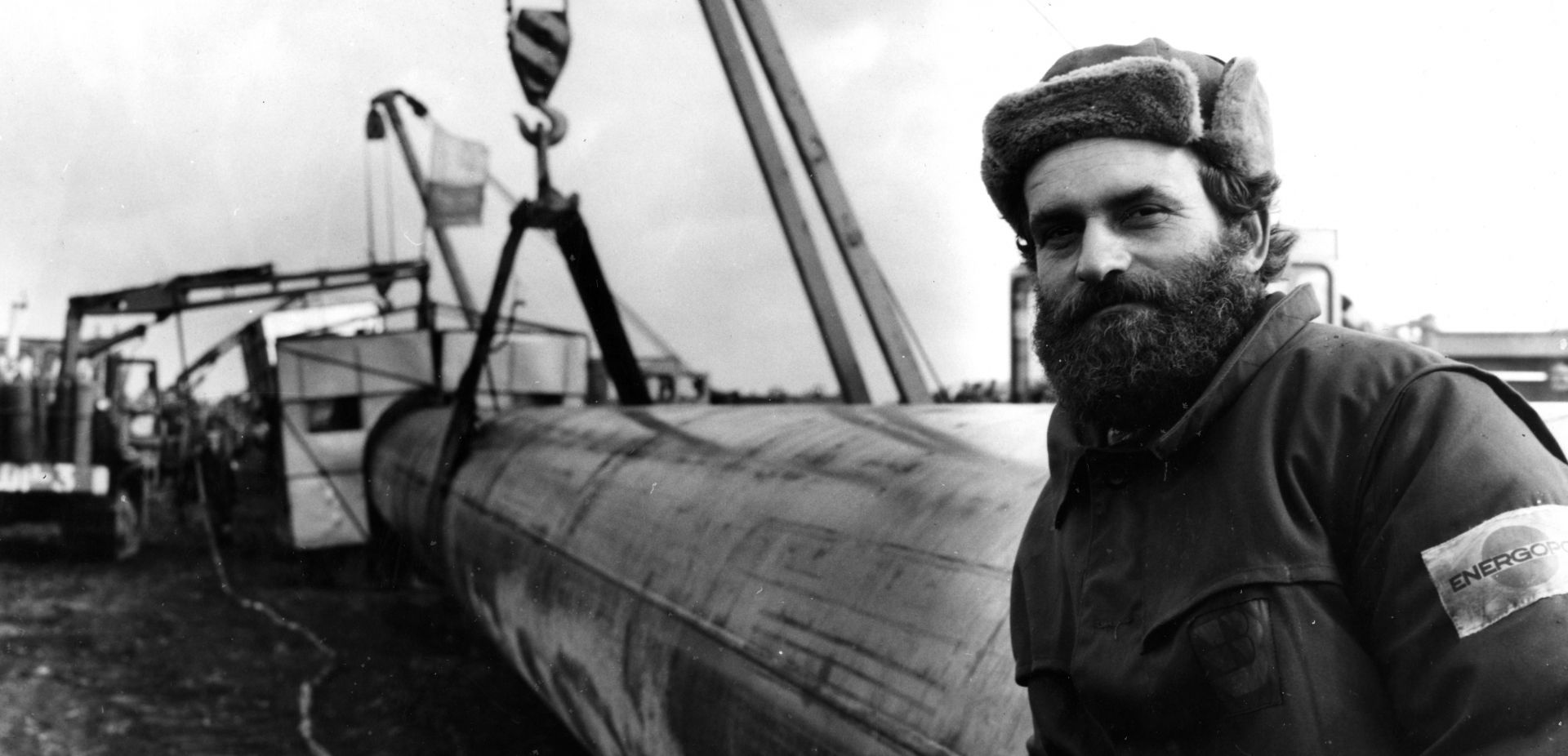What’s worse, the structure of intermediaries in the gas trade was extremely unclear. In the 1990s, a company called INTERA played such a role between Gazprom and the Ukrainian Naftohaz, and from 2006 to 2009, it was the company RosUkrEnergo.
“According to the Russian-Ukrainian agreements that ended the gas crisis in 2006, two companies, RosUkrEnergo and UkrHazEnerho, were involved in the process of selling Russian gas to Ukraine,” explained Arkadiusz Sarna in his analysis for the Centre for Eastern Studies. “RosUkrEnergo was owned half by Gazprom and half by Ukrainian entrepreneurs Dmytro Firtash (45 percent) and Ivan Fursin (5 percent), while UkrHazEnerho was half-owned by RosUkrEnergo and half by Naftohaz.”
At that time, Ukraine received gas not from Russian sources but through Russia – gas from Central Asian countries. However, Ukraine did not directly buy it from Gazprom but from its intermediaries. The supply chain worked as follows: Gazprom, based on long-term contracts, purchased gas from the Central Asian countries. Then it resold the gas extracted from its own sources along with the Central Asian gas to the company RosUkrEnergo, which organised its transportation to the Ukrainian border. The gas was then sold by RosUkrEnergo to UkrHazEnerho, responsible for distributing the fuel in Ukraine.
Gas diplomacy
And most importantly, the Ukrainian economy has always been incredibly energy-intensive, making it very susceptible to fluctuations in the price of the resource. It is worth noting that Russia readily used gas as a tool of political pressure on Kyiv by either reducing its price (when pro-Russian forces were in power) or increasing it, or even blocking supplies (when there was a pro-Western turn, as in the case of the Maidan protests). However, the first such manoeuvres took place as early as 1992, shortly after Ukraine gained independence.
 SIGN UP TO OUR PAGE
SIGN UP TO OUR PAGE 
All of this has led to the fact that even though Ukraine officially stopped buying Russian gas in 2014 (since the first aggression), in practice, it still buys it. Only through intermediaries and at a higher price.
“For years, countries like Austria and Slovakia have been reselling their surpluses to Ukraine,” explains Dominika Taranko, Director of the Energy and Climate Forum at the Union of Entrepreneurs and Employers. “However, Kyiv has to pay transmission costs, which, in the case of the contract with Vienna, could reach up to 30 percent of the total price.”
Profiting from transit
Next year, the transit agreement between Ukraine and Russia will expire. The Ukrainian Minister of Energy announced that the renewal of a five-year transit contract for deliveries to Europe is unlikely.
But similar declarations from the Ukrainian side were made five years ago. At that time, the negotiation drama lasted until the last moment, as the contract extension was signed just 24 hours before its expiration. Of course, the European Union played a significant role in this, as in 2019, it lobbied for a positive outcome of the talks.
Despite the current situation being completely different and a significant portion of EU countries becoming independent from Russian gas, there are still countries that cannot imagine functioning without it. The gas pipeline passing through Ukraine supplies about 95 percent of Slovakia’s demand and almost half of Austria’s demand (which are the countries from which Ukraine has been buying gas for years, allegedly not originating from Russia).
The West is doing everything possible to source energy from alternative sources. They have reached an agreement with Azerbaijan to increase supplies from Baku. Maritime gas terminals receive a significant amount of gas from the USA and Qatar. That said, Russian resources are still the cheapest.
It is worth adding here that for many years, Ukraine earned much more from energy transit than, for example, Poland. According to experts’ calculations from the beginning of 2021, “Poland receives the least amount among European countries for the transit of Russian gas. Ukraine earns 2-3 billion dollars annually from transit, while we receive a fraction of that amount.”
Dr. Paszkowski says that the exact figures are considered confidential, but from time to time, estimated amounts like the ones mentioned above appear in the public domain.
Will the devastated Ukrainian economy easily give up on easy money from Moscow?
Failed attempts
And the most important question – is Ukraine truly ready to realistically separate itself from resources from the East? Because despite assurances from the country’s top officials about energy independence, according to the Energy Security Index prepared by experts from the Jagiellonian Institute, Ukraine ranks last among all European countries in terms of energy carrier security (including natural gas, coal, crude oil, and motor fuels). It fares almost twice as poorly as Bulgaria, which is equally dependent on Russia.


 SIGN UP TO OUR PAGE
SIGN UP TO OUR PAGE 




